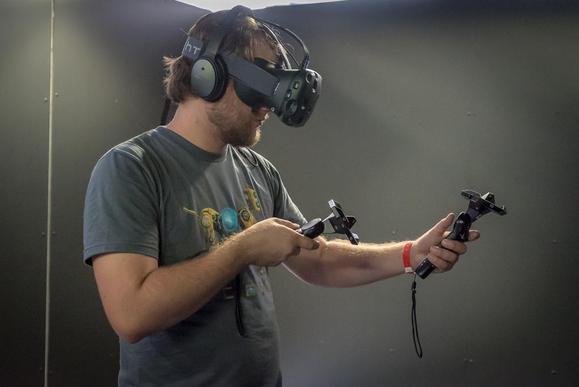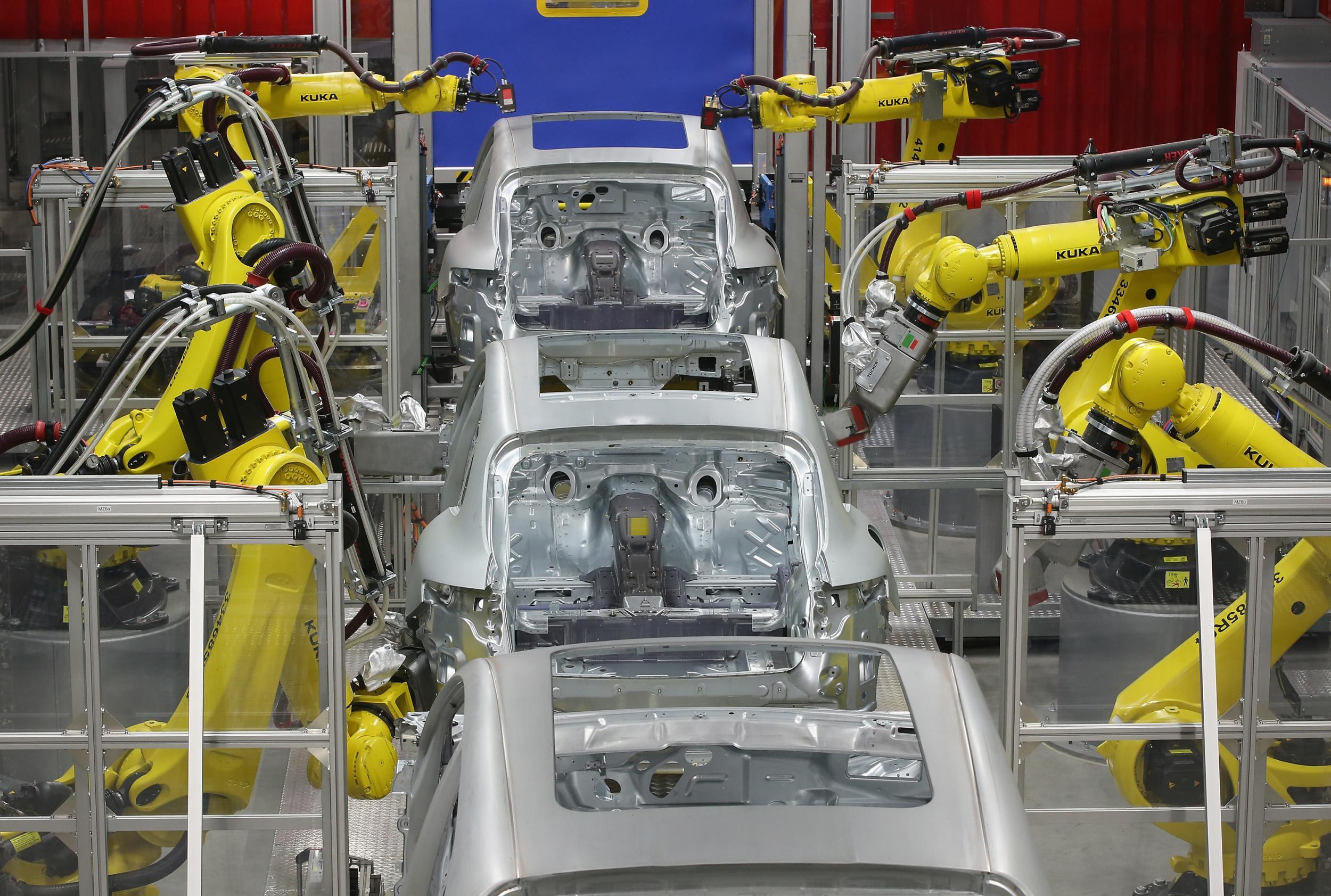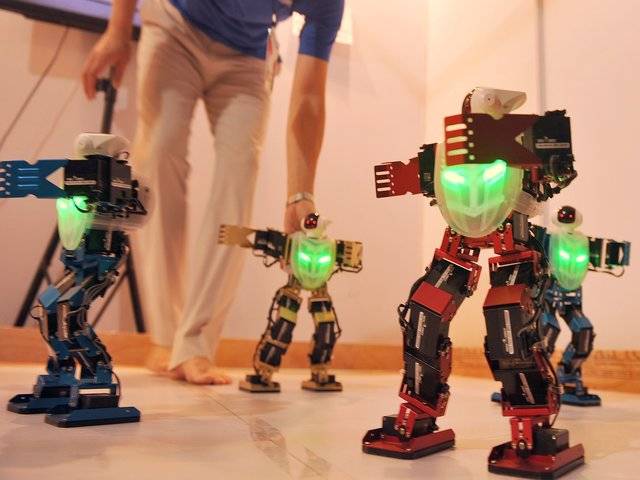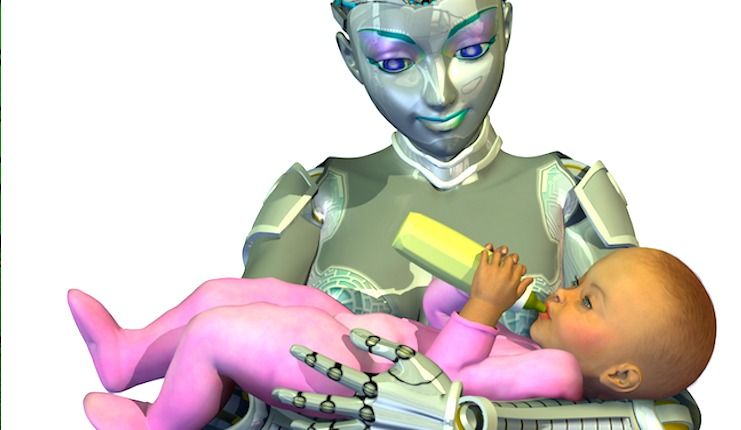The VR system from HTC and Valve comes with greater sticker shock, but also includes more stuff.
Category: economics
Very concerning news for the US security; we’ll see how the US responds. Remember, our largest hackers in the US is China; so we’ll need to determine what this means as well as how vulnerable we are.
http://www.globaltimes.cn/content/969692.shtml
China’s stock markets have been stabilizing in recent days after the rollercoaster ride at the start of the year. And one bright point has been stocks related to quantum communications, showing renewed investor interest in the new technology, which will play an important role in creating a safety net for the increasingly information technology-savvy economy.
The fact that China has taken an early lead in developing the technology and translating it into real-world quantum communications projects should give added fuel to the market hype about the apparently unfathomable yet promising investment theme.
Thus far, the practical application of the technology has mostly featured quantum key distribution, which uses tricks of quantum mechanics to enable encryption codes or keys shared between two parties that are written upon single photons of light. If an eavesdropper tries to hack the codes, they will immediately be detected because of having caused disturbance to the encoding of the photon.
I do believe that there will be some level of expansion of social services to help employees to be retrained for the new positions that are coming as well as assist lower skill workers to be retrained. However, the larger question is who should pay. Some people are saying tech should assist governments in retooling since the AI technology created the situation; others say it’s a governments issue only, etc. It will be interesting to say the least how the retraining program and other services are covered.
A leading artificial intelligence (AI) expert believes that societies may have to consider issuing a basic income to all citizens, in order to combat the threat to jobs posed by increased automation in the workplace.
Dr Moshe Vardi, a computer science professor at Rice University in Texas, believes that a basic income may be needed in the future as advances in automation and AI put human workers out of jobs.
In an interview with The Huffington Post, Dr Vardi said: “Our current economic system requires people to either have wealth or to work to make a living, with the assumption that the economy creates jobs for all those who need them.”
What will be interesting most about block chaining is when more countries drop their own traditional currency models & move to block chaining like one of the countries in Africa announced 2 weeks ago. I do know that many 2nd & 3rd world countries are finding electronic currency more appealing due to the Central Bank’s policies; however, what will be the impacts at the end of the day felt across the world as more and more 2nd & 3rd world markets switch their models. Immediately, we see risks with central banks; the question is where else (WBO, WTO, US, etc)
Many countries have experimented with price fixing and central planning over the last century. Right now, Venezuela’s government is fixing the prices of many products. This has resulted in widespread shortages of goods which we, as the lucky inhabitants of semi-free economies, take for granted.
Price fixing has failed in every area of the economy in which it has been tried. But while few serious economists would suggest that we have a team of bureaucrats set the price of rubber, wheat or coffee, we do have one sphere of the economy which is still centrally planned – our monetary system. This will fail just like all central planning fails. We are now moving into a dangerous new phase of price fixing by central banks. Having failed to stimulate economies with years of zero per cent interest rates, they are now discussing the prospect of negative interest rates (and some have even introduced them), the reductio ad absurdum of modern monetary economics.
Economist Friedrich von Hayek won the Nobel Prize in Economics in 1974 for his exposition of how central banks’ manipulation of money and interest rates causes distortions to the market and generates the boom bust cycle. He also wrote several papers in the 1970s on how allowing companies to issue their own private money would be the only long-term solution. If people could choose which money to use, it is highly unlikely that they would go with that which is routinely debased by the government or used for wild credit expansion by the banking sector.
Although this article highlights the lack of awareness by some CEOs and board members on all things around Cyber Security; I do see a larger gap and risk. I do believe if a fully funded and dedicated joint task force effort among Silicon Valley, US Government, and Wall Street are not in place tackling this jointly to help the country and economy to diffuse this situation within the next 14 to 18 months that AI could fail in its delivery due to public’s concerns around trust and security.
Therefore, tech spent millions if not billions on new AI technology that businesses and consumers see no value in due to risks.
Some board executives still need help from a search engine to explain cyber security issues, warns report.
See even Space gets it — the importance of great Cyber Security is needed now.
The disruption of capabilities that space assets provide would have immediate, far-reaching and devastating economic, political, and geostrategic consequences. Over the past two decades, space vulnerabilities have grown dramatically in a manner commensurate with terrestrial dependency on space-based capabilities and enablers. This is true for both civilian and military activities. Purposeful interference with space systems could rather easily trigger a retaliatory spiral of actions that could compromise a safe and secure operating environment in space. Accordingly, having available a range of measures to prevent or preempt an incident, or even full-up conflict, is of rapidly growing importance to an increasing number of countries.
The interruption of space services through a cyber attack could involve large, and possibly very complex, knock-on effects. As the space and cyberspace domains are linked operationally—space cannot exist without cyber and cyber, in some cases, without space—and they permeate all other warfighting domains (i.e. land, air, and sea), cyber-related vulnerabilities of space assets are a major concern. Global effects would be virtually instantaneous.
Given these realities, space-dependent civilian governments are wise to be seeking new ways to engage in serious international discussions concerning how best to ensure responsible behavior in these two connected domains. Meanwhile, space-dependent militaries are, to varying degrees, bracing themselves for the worst by the establishment of crisis management mechanisms to address fast-moving security threats emanating from cyber-related vulnerabilities embedded in space systems and operations. In some cases, this mechanism includes taking proper account of growing government dependency on commercial providers as key parts of both military and civilian missions.
I agree; still a lot of work to be done in order for AI to have a huge impact around taking most of the jobs away. Besides, with new technology comes new careers.
India’s finance minister isn’t worried about jobs being lost in the country’s manufacturing sector despite warnings that industrial robots will dramatically reduce the need for factory workers in coming decades.
“I still have faith in human ingenuity, that even when jobs are lost in certain sectors … more jobs will be created because of that increased economic activity in other sectors,” Arun Jaitley told CNN’s Fareed Zakaria on Sunday at the CNN Asia Business Forum in Mumbai.
Economists are increasingly concerned that developments in artificial intelligence and robotics will disrupt the business world in a similar way to previous industrial revolutions, leading to job losses.
I find this a bit of a stretch. Maybe some jobs; however, not all and there will be (like any new technology, etc.) new career fields created.
“Can the global economy adapt to greater than 50 per cent unemployment? Will those out of work be content to live a life of leisure?” Vardi noted.
“I believe that society needs to confront this question before it is upon us: If machines are capable of doing almost any work humans can do, what will humans do?” he said.
“The question I want to put forward is, ‘Does the technology we are developing ultimately benefit mankind?’” said Vardi, a member of both the US National Academy of Engineering and the National Academy of Science.
MindMaze technology explores the potential of brain machine interfacing with virtual reality, and it just got a huge financial boost.
Switzerland-based VR company, MindMaze received a major investment from Hinduja Group, who has valued the company at over $1 billion. This is a ten-fold increase since its previous valuation in 2012 where it was pegged at $10 million.
In a recent report published by the Economic Times, the investment is only “less than a third” of the company and makes MindMaze one of two “unicorns” in the AR and VR industry. MindMaze now joins Magic Leap in this category, which was values at over $4 billion.
Again, I see too many gaps that will need to be address before AI can eliminate 70% of today’s jobs. Below, are the top 5 gaps that I have seen so far with AI in taking over many government, business, and corporate positions.
1) Emotion/ Empathy Gap — AI has not been designed with the sophistication to provide personable care such as you see with caregivers, medical specialists, etc.
2) Demographic Gap — until we have a more broader mix of the population engaged in AI’s design & development; AI will not meet the needs for critical mass adoption; only a subset of the population will find will connection in serving most of their needs.
3) Ehtics & Morale Code Gap — AI still cannot understand at a full cognitive level ethics & empathy to a degree that is required.
4) Trust and Compliance Gap — companies need to feel that their IP & privacy is protected; until this is corrected, AI will not be able to replace an entire back office and front office set of operations.
5) Security & Safety Gap — More safeguards are needed around AI to deal with hackers to ensure that information managed by AI is safe as well as ensure public saftey from any AI that becomes disruptive or hijacked to cause injury or worse to the public
Until these gaps are addressed; it will be very hard to eliminate many of today’s government, office/ business positions. The greater job loss will be in the lower skill areas like standard landscaping, some housekeeping, some less personable store clerk, some help desk/ call center operations, and some lite admin admin roles.
The U.S. economy added 2.7 million jobs in 2015, capping the best two-year stretch of employment growth since the late ‘90’s, pushing the unemployment rate down to five percent.
But to listen to the doomsayers, it’s just a matter of time before the rapid advance of technology makes most of today’s workers obsolete – with ever-smarter machines replacing teachers, drivers, travel agents, interpreters and a slew of other occupations.









